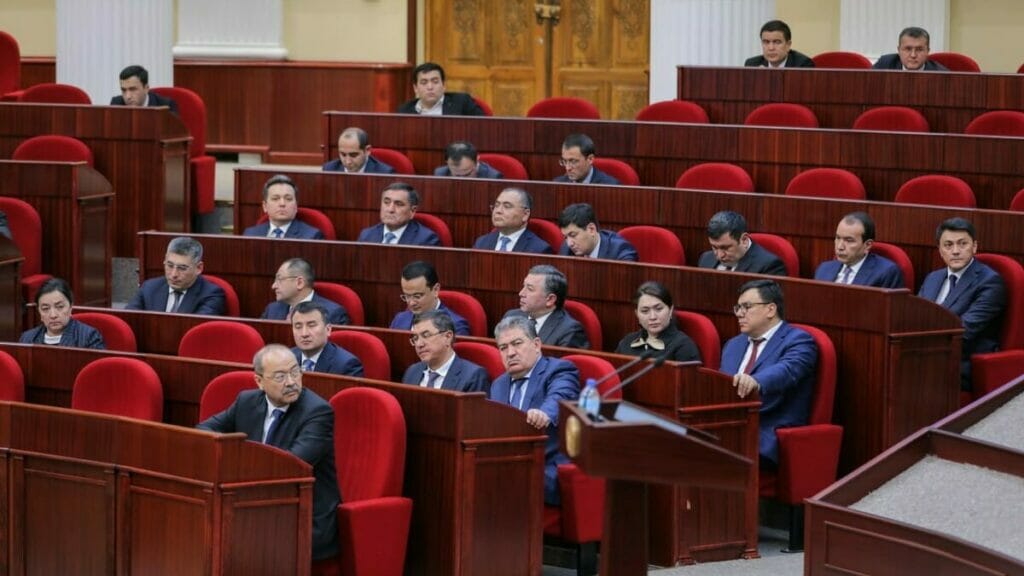Uzbekistan launches massive administrative reform

On December 30, 2022, President Shavkat Mirziyoyev of Uzbekistan signed an edict that reorganized some ministries. As a result, some officials have been promoted while others got the prefix «ex» added to their previous titles.
During his address to the nation, Mirziyoyev stated that the first stage of the reform will cover ministries and the style of work of the cabinet. The number of executive bodies under the cabinet’s supervision is going to be decreased from 61 to 28. Similarly, the number of ministries is set to decrease from 25 to 21. The number of public sector employees is going to be cut by 35%.
The first appointment following the announcement of the reform was of Baxtiyor Saidov. He has been assigned as the minister of foreign affairs instead of Vladimir Norov. Previously Saidov served as minister of public education and Uzbekistan’s ambassador to China (2017-2020).
According to Stanislav Pritchin, senior research assistant in the Center for Post-Soviet Studies, a change in foreign minister doesn’t mean a change in the foreign policy of Uzbekistan. «The country’s foreign policy has already formed and the task of a foreign minister is to execute decisions that were made by the president’s office,» the expert noted.
On the evening of December 30, 2022, the authorities announced the new composition of the renewed cabinet. Abdulla Aripov has kept his position as prime minister, while the number of his deputies shrank from eight to four: Achilbay Ramatov, Jamshid Kuchkarov (former minister of economic development and poverty reduction), Jamshid Khodjayev (former minister of investments and foreign trade) and Zulaikho Makhkamova. All four vice ministers are no longer allowed to hold any leading positions.
Bakhtiyor Ergashev, head of the Ma’no Research Initiative Center, believes that these changes reflect key trends in cabinet reform. For example, the new Ministry of Economy and Finance has been established to replace two former bodies: the Ministry of Economic Development and Poverty Reduction and the Ministry of Finance. The new ministry also supervises the State Tax Committee and customs service.
«The new super ministry is a ministry of income and expenses that is responsible for macroeconomic forecasting, financial management, budget replenishment and its distribution,» Ergashev says.
On the other hand, Pritchin points out some potential challenges. «The former Ministry of Finance was in charge of the budget replenishment and national finances. The Ministry of Economic Development was developing new strategies. So, who will be in charge of strategies in the new ministry?» the expert is wondering. He said that the new Ministry of Investments, Industry and Trade can take on part of this task.
«Before the new ministry was formed, the Ministry of Investments and Foreign Trade was in charge of industrial development, new projects and free economic zones. I hope that the new ministry with all its powers will ensure that the scheme of investments – industry – exports will work correctly,» Ergashev said.
Several other ministries were just combined. For instance, the Ministry of Preschool Education has been combined with the Ministry of School Education; the Ministry of Higher and Secondary Specialized Education has been combined with the Ministry of Innovations, and the Ministry of Culture has been combined with the Ministry of Tourism and Cultural Heritage. The Ministry for Support of Mahalla and the Older Generation has been completely closed.
In turn, Uzbekistan has established a new Ministry of Mining and Geology. Ergashev believes that this agency might be combined with the Ministry of Natural Resources.
However, all these cabinet changes are just part of a broader administrative reform. «I think that regional and district authorities are going to separate their powers. Currently, heads of districts and regions are heads of the executive and representative powers at the same time. This system is outdated and representative power should be taken away from heads of districts and regions. The transformation process will be continued as Uzbekistani society demands better quality of public services,» the expert said.

